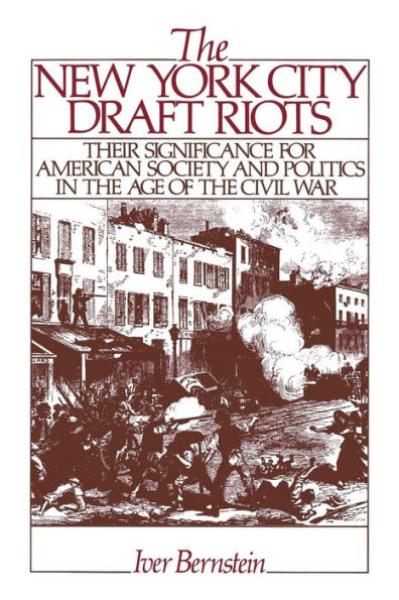Description
In this vividly written book, Iver Bernstein tells the compelling story of the New York City draft riots. He details how what began as a demonstration against the first federal draft soon expanded into a sweeping assault against the local institutions and personnel of Abraham Lincoln's Republican Party as well as a grotesque race riot. Bernstein identifies participants, dynamics, causes and consequences, and demonstrates that the winners and losers of the July 1863 crisis were anything but clear, even after five regiments rushed north from Gettysburg restored order. In a tour de force of historical detection, Bernstein shows that to evaluate the significance of the riots we must enter the minds and experiences of a cast of characters--Irish and German immigrant workers, Wall Street businessmen who frantically debated whether to declare martial law, nervous politicians in Washington and at City Hall. Along the way, he offers new perspectives on a wide range of topics: Civil War society and politics, patterns of race, ethnic and class relations, the rise of organized labor, styles of leadership, philanthropy and reform, strains of individualism, and the rise of machine politics in Boss Tweed's Tammany regime.
An in-depth study of one of the most troubling and least understood crises in American history, The New York City Draft Riots is the first book to reveal the broader political and historical context--the complex of social, cultural and political relations--that made the bloody events of July 1863 possible.
An original work in the historiography of Civil War America and labor history, and also synthesizes much of the current historical research. It stimulates and provokes. Most important, it recaptures much of the world we have lost.--New York Times Book Review
Especially appealing...When Bernstein crosses historical genres, it's an almost synesthetic pleasure...The New York City Draft Riots establishes a world as it was lived in. Its outline shows clearly against the backdrop of our own populist racism, in what is still the unreconstructed North.--Village Voice
An outstanding piece of social, economic, and political history, suggesting the benefits of integrating new and older historiography, the book also illustrates a pitfall or two that historians may wish to keep in mind...An excellent, revelatory book...His writing is clear and his immense research shines on every page.--Reviews in American History
Detailed and sophisticated...An impressive book. Bernstein displays ingenuity in conceiving of the riots as something more than an abrupt, momentary episode, and he has dug deep to locate sources...Clearly the new interpretive authority.--Georgia Historical Quarterly
Not since David Montgomery's Beyond Equality (1967) has the relationship between Civil War politics and the social history of the urban-industrial North been explored so successfully as in this study.--Journal of American History
Product Details
- Oxford University Press, Brand
- Oct 10, 1991 Pub Date:
- 0195071301 ISBN-10:
- 9780195071306 ISBN-13:
- 384 Pages
- 9.2 in * 6.13 in * 0.94 in Dimensions:
- 1 lb Weight:




